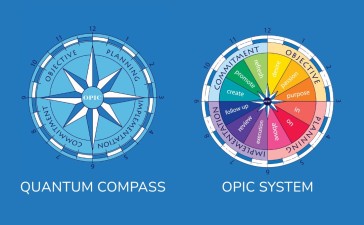“You didn’t get the job.”
These words hurt a lot when you’re job hunting – and hurt so much more during this pandemic-induced recession. A report from CNN revealed that millions of Americans have been unemployed for months.
Landing a job during the ongoing crisis is incredibly difficult, as you’ll be competing with a lot of people who lost their jobs. During your employment search, you’ll face rejection and seemingly endless “nos” that could leave you feeling pathetic.
If you’re feeling down in the dumps because of all the rejection letters you’re getting, take this opportunity to turn those denials into a positive learning opportunity.
Here are five suggestions to help you with this process:
- Assess and Reflect on Your Previous Job Applications
Brushing aside the job rejection experience and never thinking of it again can be tempting. After all, the employer has already made a decision and you can’t change the outcome. Forgetting everything that happened, however, means that you’re passing up on a major learning opportunity.
If you’ve received feedback or discovered information that destroyed your chances of landing that job, take the time to review and reflect. Rank your performance for each part of the job application process and check for areas of improvement.
An example of an area that you can improve on is your creditworthiness. Some employers consider credit standing when making hiring decisions. They’re likely tapping a company that uses reliable credit checking solutions for businesses to get insight into the credit history of applicants.
If you’re applying for jobs that require good credit standing, you’ll need to find ways to rebuild or restore your creditworthiness.
- Come up with a Personal Development Plan
Look back at the previous job interviews and past application rejections. Look for any recurring themes, such as lack of knowledge or experience.
Once you’ve found gaps in your performance, fix them by creating a personal improvement plan. Depending on what you need to work on, you may need to go through formal coaching or enroll in continuous learning programs to address those gaps.
- Seek Help from Others
If employers keep striking you out, ask help from mentors and trusted friends and share your process. Ask them for honest and constructive criticism. Listen carefully to the feedback they provide and make changes to your approach as necessary. Also, practice your elevator pitch and answers to frequently asked interview questions with your friends and mentors.
- Tweak Your Employment Search
Sometimes, the jobs that you’re applying for aren’t the right fit for you. Reread the job description and find out if you see yourself doing fantastic in that role. If there are aspects of the job that you didn’t like, the hiring manager may have noticed this from you.
Rather than stick to the same job search strategy and hope that you’ll land a job one day, use your job rejection experiences to refine future employment searches. A few guide questions that you should reflect on are the following:
- Are you applying for jobs that match your aspirations or ambitions?
- Are you gunning for vacant positions for the sake of getting a job and having a salary that can pay your monthly bills?
- Do the responsibilities that come with the job title match your expectations?
- Develop Resilience
Getting turned down happens to everyone. It’s a fact of life. Instead of throwing in the towel after your first few applications, bounce back and look at each rejection as an opportunity for growth. Building a mindset of resilience and grit is crucial for long-term success.
A job rejection may seem like the end of the line for you. Rather than feel sad all day, apply these five suggestions and transform that unfortunate event into a learning experience.





